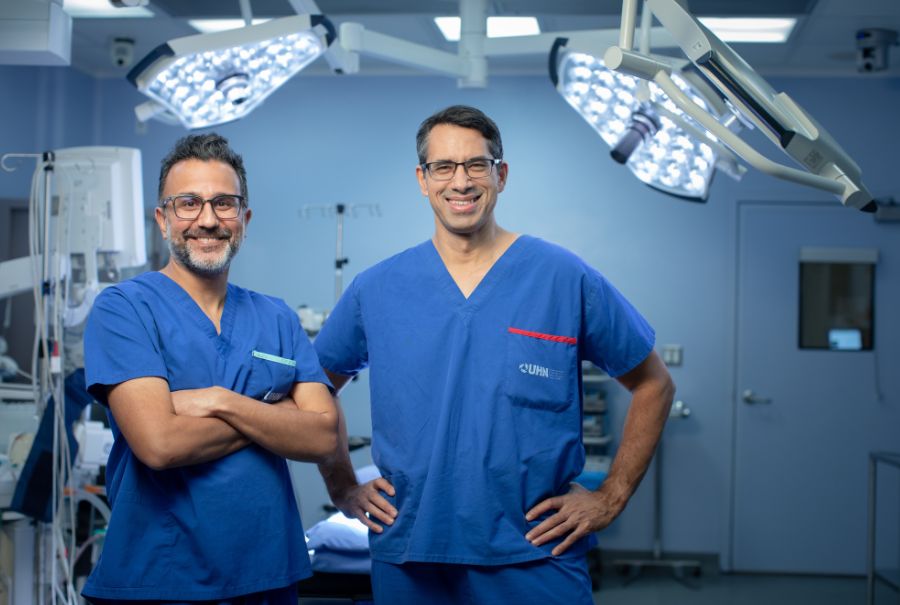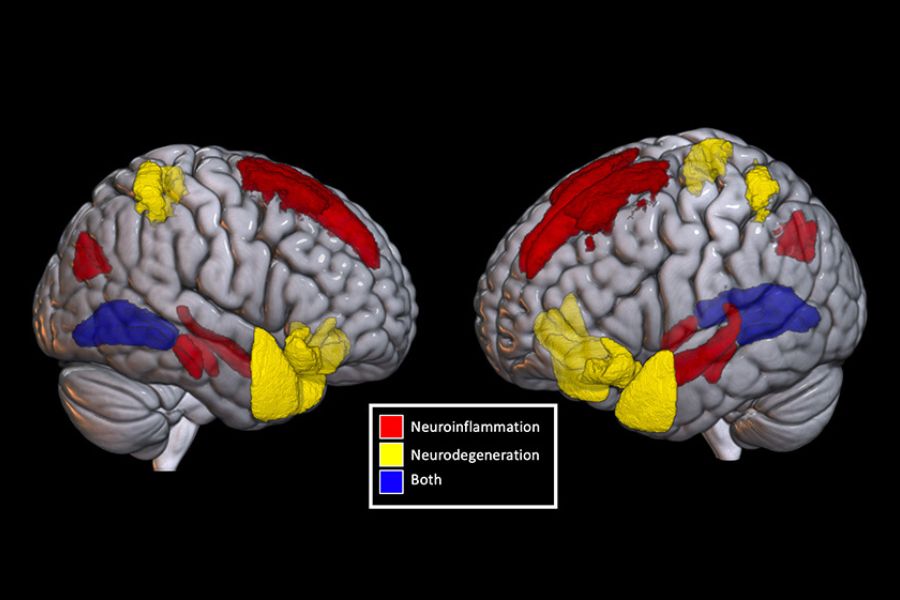
In a new study published Aug. 21, 2024 in Nature Medicine, UHN researchers shed light on their discovery that molecular biomarkers can help predict response to the most common treatment approaches in meningiomas.
Meningiomas are the most common primary brain tumour in adults, accounting for approximately 30 per cent of all cases. Many of these tumours can successfully be removed surgically.
Aside from surgery, radiation therapy remains the only alternative treatment for these tumours, but it is generally reserved as an adjuvant, or secondary, therapy for aggressive or recurrent meningiomas, or for tumours that cannot be removed completely with surgery.
“Response to surgery and radiotherapy varies considerably between different patients with meningiomas due to their individual tumour’s biology, and the role of molecular biomarkers to be able to accurately predict treatment outcomes has not been fully explored,” says Dr. Justin Wang, senior neurosurgery resident at UHN’s Krembil Brain Institute and the University of Toronto (U of T), and lead author of the study.
“We set out to analyze whether the biology of the tumour can predict how well a patient would respond to treatment. What we found will build on our understanding of the biological underpinnings of disease and take it a step further, to actually help improve patient outcomes.”
Researchers used retrospective data on more than 2,800 meningiomas, including molecular data on over 1,500 tumours collected from around the world and 100 tumours from a Phase 2 clinical trial, to define molecular biomarkers of treatment response.
They found that removal of the whole tumour reduces the likelihood that it will grow back, across all molecular groups, but that this benefit is less likely in the most biologically aggressive, proliferative tumours. However, completely removing these tumours, including treating their attachments to the dura, or membrane that surrounds the brain and spinal cord, can prolong a patient’s life.
Also noted in the team’s findings:
- Molecular biomarkers appeared to accurately predict response to radiotherapy, which led researchers to develop a molecular model to predict response to radiotherapy that discriminates outcome better than standard-of-care classification.
- Obtaining complete surgical removal of the meningioma significantly decreases the probability of tumour recurrence across all molecular groups, although this risk remains higher in more biologically aggressive meningiomas (belonging to the hypermetabolic and proliferative subtype, compared to more benign subtypes).
- Completely removing the most biologically aggressive proliferative meningiomas will also improve a patient’s duration of survival, for meningiomas that otherwise have a poor prognosis.
- In addition to complete resection, additional treatment of a meningioma’s dura further improved progression-free survival, although there did not appear to be a major difference between resecting these margins compared to using thermocoagulation, or extreme heat, to kill the tumour.
This research builds on previous work by this group, which identified four distinct molecular subtypes of meningiomas that can predict tumour biology and clinical outcomes more effectively than current, standard-of-care classifications.
However, it was still unknown whether some subtypes of meningiomas would respond better to surgery and radiation compared to other subtypes, and if a tailored surgical and radiotherapy planning approach could lead to improved outcomes and better inform the design of future clinical trials.
“One of the most challenging clinical decisions to make in the care of meningioma patients is deciding which patients should receive radiation treatment after surgery for their tumour,” says Dr. Gelareh Zadeh, co-supervisor of this study and co-Director of UHN’s Krembil Brain Institute, Senior Scientist at UHN’s Princess Margaret Cancer Centre, Head of the Division of Neurosurgery at UHN’s Sprott Department of Surgery, Dan Family Chair and professor in the Department of Neurosurgery at U of T, and co-senior author of this study.
“We found that for aggressive, proliferative meningiomas, giving radiation after surgery did not noticeably improve clinical outcomes, suggesting that this group of meningiomas may be resistant to radiation,” said Dr. Farshad Nassiri, staff neurosurgeon at UHN’s Krembil Brain Institute and UHN’s Sprott Department of Surgery, and co-senior author of the study.
“Our team’s model that uses molecular signatures of radiation-treated meningiomas from a completed clinical trial, can help to predict radiation response for any given patient’s meningioma.
“This study highlights the potential for molecular profiling to refine surgical and radiotherapy decision-making, and improve patient outcomes.”
This work was supported by generous donors to UHN Foundation.

No one ever changed the world on their own but when the bright minds at UHN work together with donors we can redefine the world of health care together.


